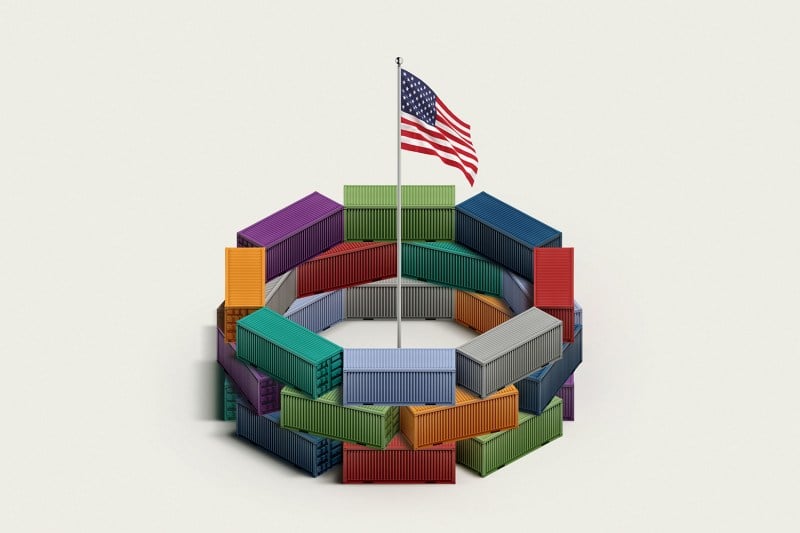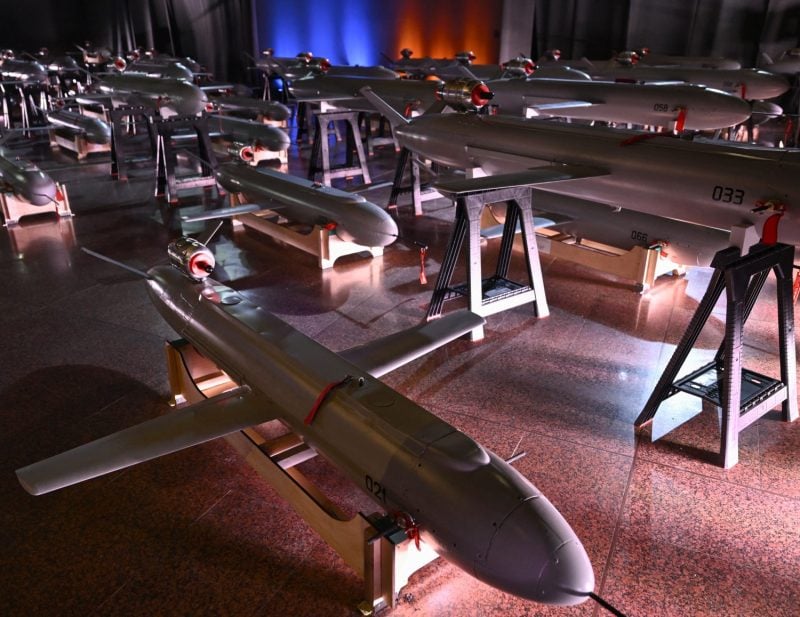What Makes Trump’s Tariffs Different This Time Around?

What Makes Trump’s Tariffs Different This Time Around?
A guide to the history and future of U.S. protectionism.
Matt Chase illustration for Foreign Policy
U.S. President Donald Trump’s sweeping new tariffs have made headlines since the start of his term. His trade policy, which is more aggressive than during his first administration, is already rattling the global trade system. Yet while Trump’s moves are extreme, FP contributors have pointed out that Washington has been embracing protectionism for some time.
As Bob Davis, a veteran economics reporter, wrote last September, the Biden administration actually “confirmed and deepened” the shift toward protectionism that marked Trump’s first term, reflecting a “broader change in the U.S. economic and political thinking.”
U.S. President Donald Trump’s sweeping new tariffs have made headlines since the start of his term. His trade policy, which is more aggressive than during his first administration, is already rattling the global trade system. Yet while Trump’s moves are extreme, FP contributors have pointed out that Washington has been embracing protectionism for some time.
As Bob Davis, a veteran economics reporter, wrote last September, the Biden administration actually “confirmed and deepened” the shift toward protectionism that marked Trump’s first term, reflecting a “broader change in the U.S. economic and political thinking.”
Think of this edition of Flash Points as a guide to what Davis calls our era of “neo-protectionism.” Below, you’ll find articles that provide insight into many of your tariff-related questions, as well as the history and future of Trump’s favorite economic tool.
U.S. President John F. Kennedy signs a trade bill at the White House in Washington on Oct. 11, 1962.Bettmann Archive/Getty Images
How Washington Learned to Stop Worrying and Embrace Protectionism
Biden’s embrace of Trump-era tariffs is emblematic of a broader change in U.S. thinking on trade—and toward China, Bob Davis writes.
Tomatoes from Canada are displayed for sale at a Whole Foods store in New York on Feb. 3.Michael M. Santiago/Getty Images
Why Is the President, Not Congress, in Charge of Tariffs?
Presidential dominance over tariff policy was not always the way that things were, Julian E. Zelizer writes.
U.S. President Donald Trump signs trade sanctions against China at the White House in Washington on March 22, 2018.Mandel Ngan/AFP via Getty Images
Everything You Wanted to Know About Trump’s Tariffs but Were Afraid to Ask
“Tariff man” can levy them all right. The real questions are how and why, FP’s Keith Johnson writes.
Foreign Policy illustration/iStock and Getty Images
Trump Has the Whole Global Trade System in His Sights
The U.S. president’s ambitions for “reciprocity” aren’t limited to China, Bob Davis writes.
Commercial trucks cross the Lewiston-Queenston Bridge border crossing into the United States in Niagara Falls, Canada, on Feb. 4. Joe Raedle/Getty Images
How Trump’s Tariff Policy Will Shape the World
As FP’s Cameron Abadi and Adam Tooze discuss, China is fighting back, but other countries will struggle to respond.
Chloe Hadavas is a senior editor at Foreign Policy. X: @Hadavas
More from Foreign Policy
-

Russian President Vladimir Putin looks on during a press conference after meeting with French President in Moscow, on February 7, 2022. The Domino Theory Is Coming for Putin
A series of setbacks for Russia is only gaining momentum.
-

The container ship Gunde Maersk sits docked at the Port of Oakland on June 24, 2024 in Oakland, California. How Denmark Can Hit Back Against Trump on Greenland
The White House is threatening a close ally with a trade war or worse—but Copenhagen has leverage that could inflict instant pain on the U.S. economy.
-

Donald Trump speaks during an event commemorating the 400th Anniversary of the First Representative Legislative Assembly in Jamestown, Virginia on July 30, 2019. This Could Be ‘Peak Trump’
His return to power has been impressive—but the hard work is about to begin.
-

US Secretary of State Marco Rubio greets employees at the State Department in Washington, DC, on January 21, 2025. The National Security Establishment Needs Working-Class Americans
President Trump has an opportunity to unleash underutilized talent in tackling dangers at home and abroad.












Join the Conversation
Commenting on this and other recent articles is just one benefit of a Foreign Policy subscription.
Already a subscriber?
.
Subscribe
Subscribe
View Comments
Join the Conversation
Join the conversation on this and other recent Foreign Policy articles when you subscribe now.
Subscribe
Subscribe
Not your account?
View Comments
Join the Conversation
Please follow our comment guidelines, stay on topic, and be civil, courteous, and respectful of others’ beliefs.
Change your username |
Log out
Change your username:
CANCEL
Confirm your username to get started.
The default username below has been generated using the first name and last initial on your FP subscriber account. Usernames may be updated at any time and must not contain inappropriate or offensive language.